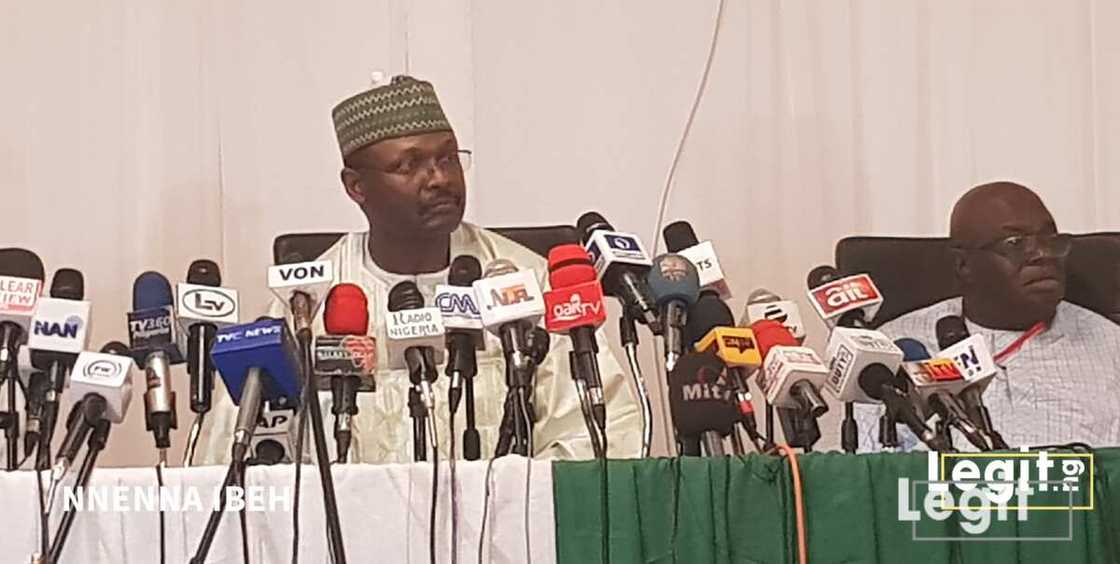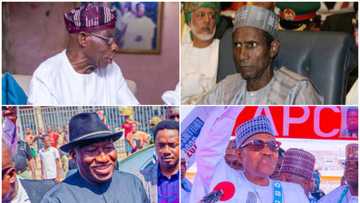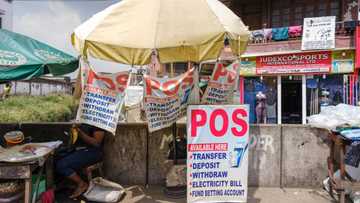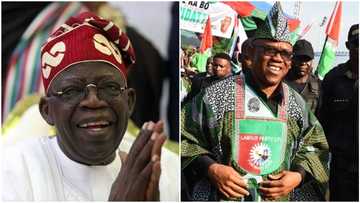2023 Elections: Critical Facts about Nigeria's Presidential Polls from Obasanjo to Buhari
With the general elections just days away, it is vital to revisit how polls, especially at the national level, have faired from when Nigeria returned to democratic rule in 1999 to 2019.
Legit.ng has put together comprehensive records of the performances of winners, losers, the electorate, and geopolitical regions during presidential elections in the polity.

Source: Original
Winner's vote against opposition from 1999 - 2019
Below is a list of percentages of votes won by the winners against those who came second in the presidential elections from when Obasanjo became Nigeria's president under the democratic dispensation to President Buhari's second administration:
- In the 1999 presidential election, the winner got 63% of valid votes while oppositions political parties shared 37%
- In 2003, it was 62%
- In 2007, it was 70%
- In 2011, it was 59%
- In 2015, it was 54%
- In 2019, it was 56%

Read also
2023 elections: How winners, losers, 3rd forces performed in presidential polls from Obasanjo to Buhari
PAY ATTENTION: Share your outstanding story with our editors! Please reach us through info@corp.legit.ng!
Presidential elections: Winner's vote vs registered voters
Below are the ratios of winners' votes to the number of registered voters who participated in the voting exercises during presidential elections from 1999 to 2019:
- 1999: 18.7 million votes - 57.9 million voters
- 2003: 24.5 million votes - 60.8 million voters
- 2007: 24.6 million votes - 61.6 million voters
- 2011: 22.5 million votes - 73.5 million voters
- 2015: 15.4 million votes - 67.4 million voters
- 2019: 15.2 million votes - 82.3 million voters
Third forces in presidential elections
Number of parties and total votes
- 2003 — 18 parties, 2.31 million
- 2007 — 23 parties, 4.15 million
- 2011 — 18 parties, 3.50 million
- 2015 — 12 parties, 309K
- 2019 — 71 parties, 870K
Cumulative percentage average of votes garnered by PDP from 6 geopolitical zones in 1999, 2003, 2011, 2015, and 2019:

Read also
Naira scarcity: Banks, PoS operators, cash out big as Nigerians transact N39.5tn electronically in one Month
- South-south — 84.8%
- Southeast — 79.9%
- North-central — 54.7%
- Southwest — 50.7%
- Northeast — 39.5%
- Northwest — 34.6%
Third forces in presidential elections (from 2003 to 2019)
Number of parties and total votes:
- 2003 — 18 parties, 2.31 million
- 2007 — 23 parties, 4.15 million
- 2011 — 18 parties, 3.50 million
- 2015 — 12 parties, 309K
- 2019 — 71 parties, 870K
Margin of victory in presidential elections (1999 - 2019)
- 1999 - 7.63 million votes
- 2003 - 11.75 million votes
- 2007 - 18.03 million votes
- 2011 - 10.28 million votes
- 2015 - 2.57 million votes
- 2019 - 3.93 million votes
Winners' votes in presidential elections (1999 - 2019)
- 1999 - 18,738,154
- 2003 - 24,456,140
- 2007 - 24,638,063
- 2011 - 22,495,187
- 2015 - 15,424,921
- 2019 - 15,191,847
2023 polls: "Election will not hold in 240 polling units", INEC declares
Nigeria's electoral body, the independent national electoral commission (INEC), says the election will not hold in 240 polling units.

Read also
Tinubu or Peter Obi? Atiku Ruled Out as Stears' Poll Predicts Winner of Nigeria's 2023 Presidential Election
This development was disclosed on Monday, February 13, by the INEC chairman, Prof. Mahmood Yakubu, during a meeting with leaders of political parties.
The decision was due to the refusal of electorates in the enlisted polling units to vote.
Source: Legit.ng


